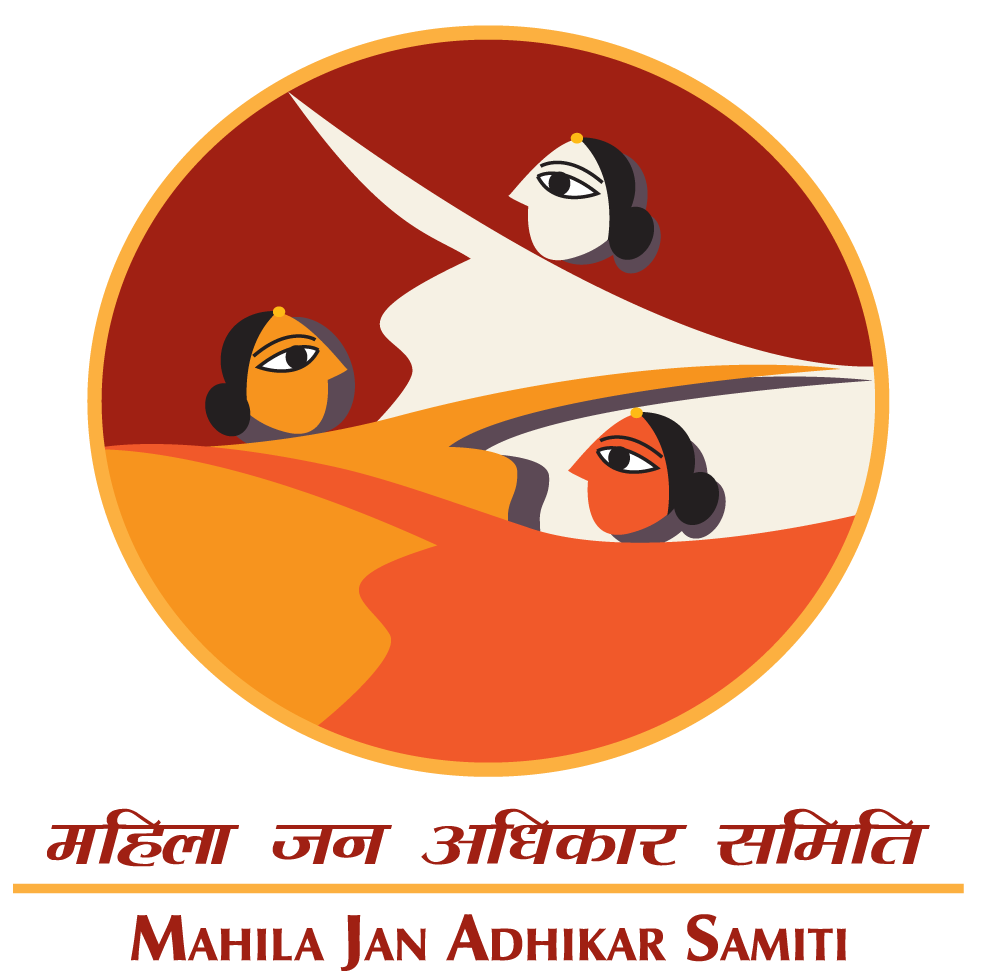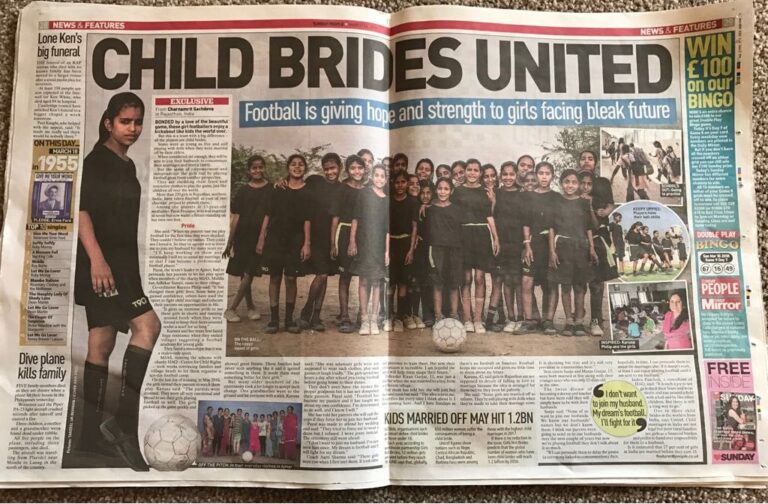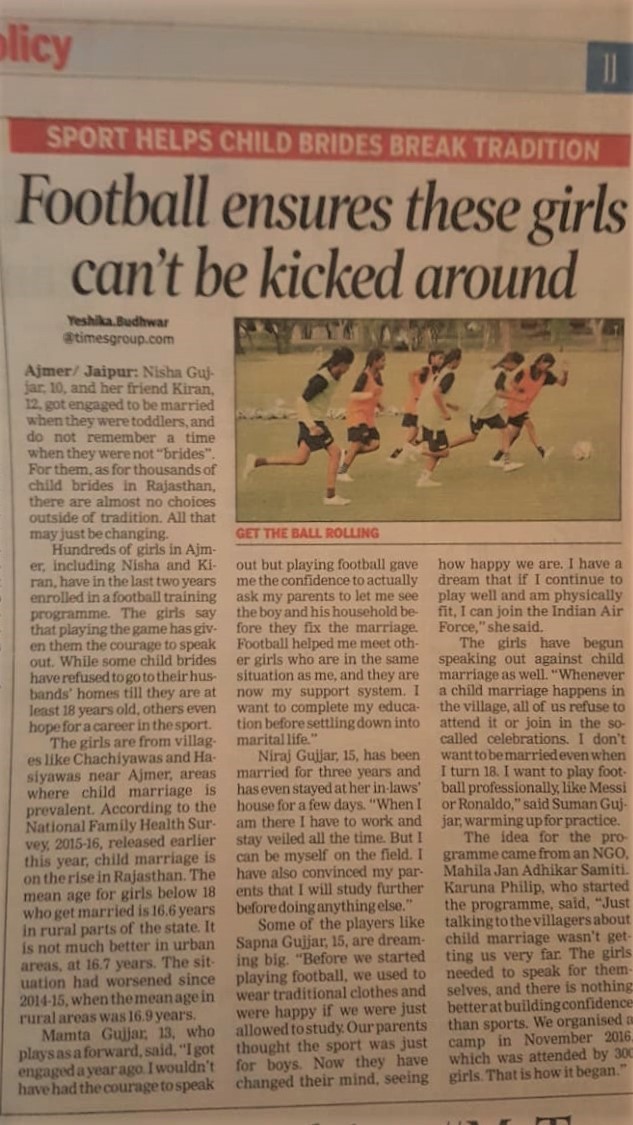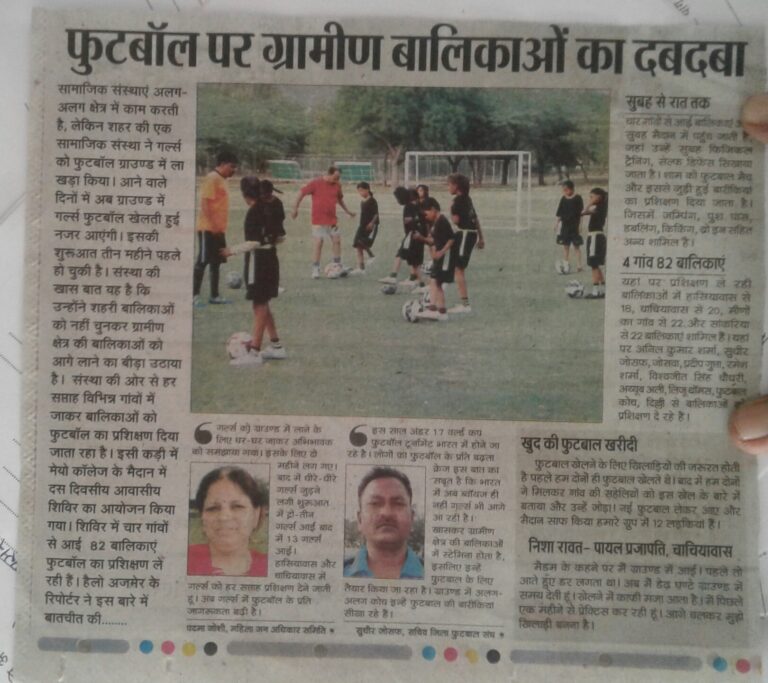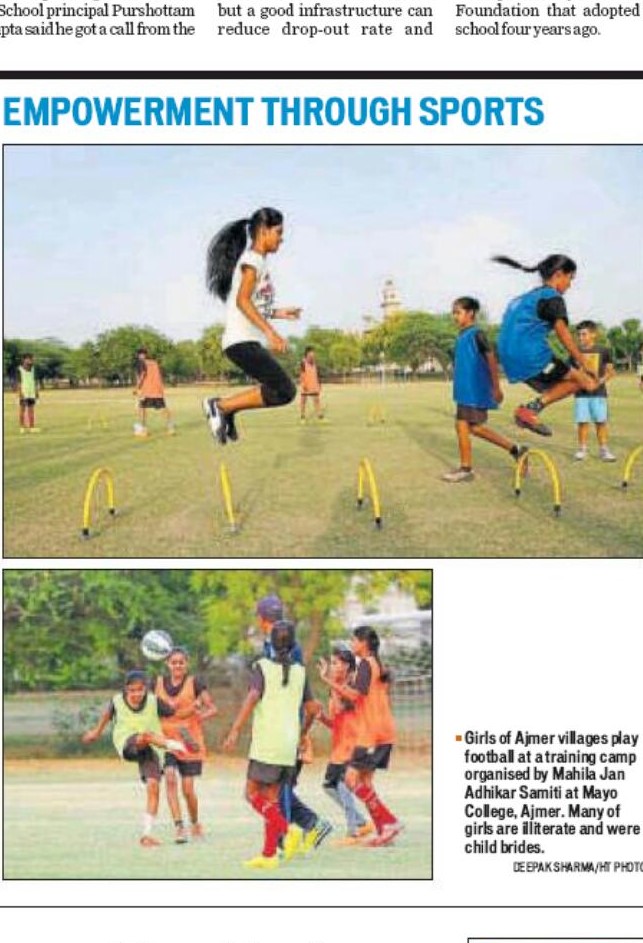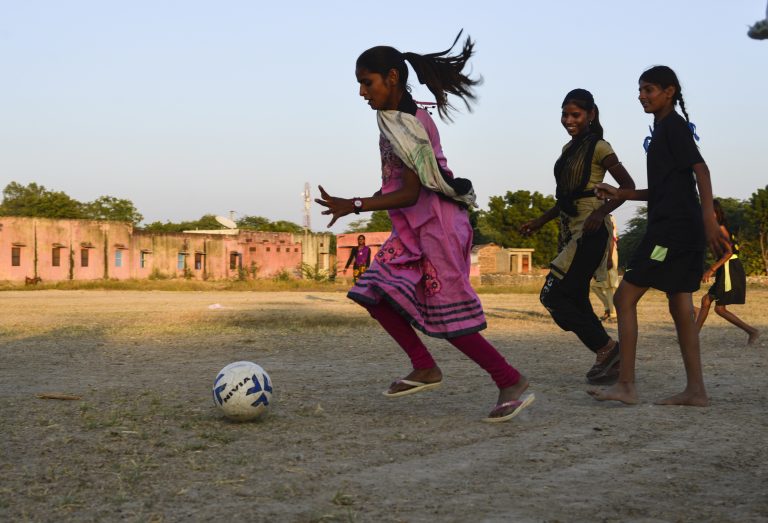
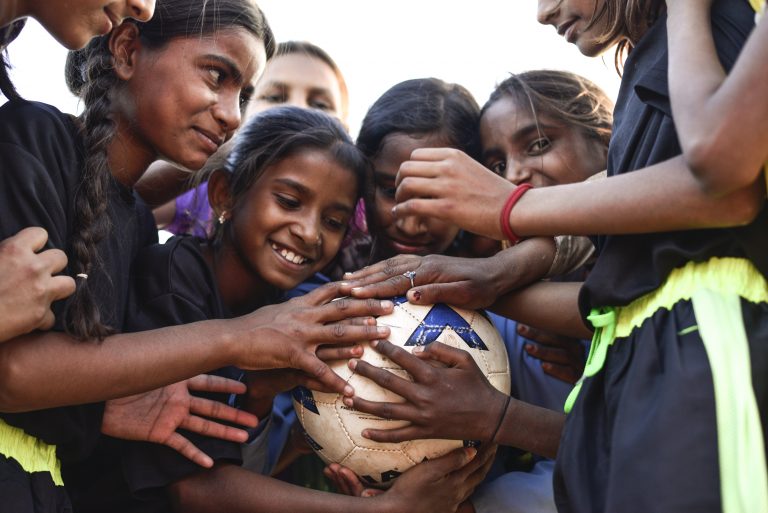

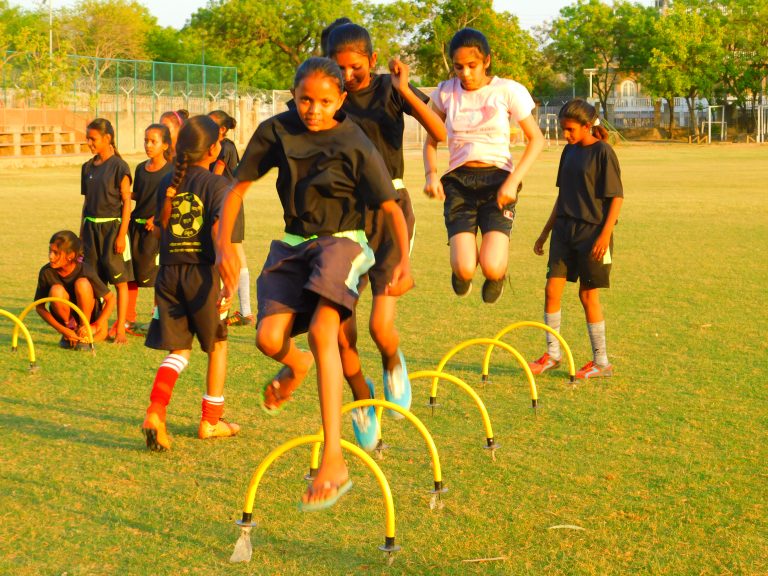
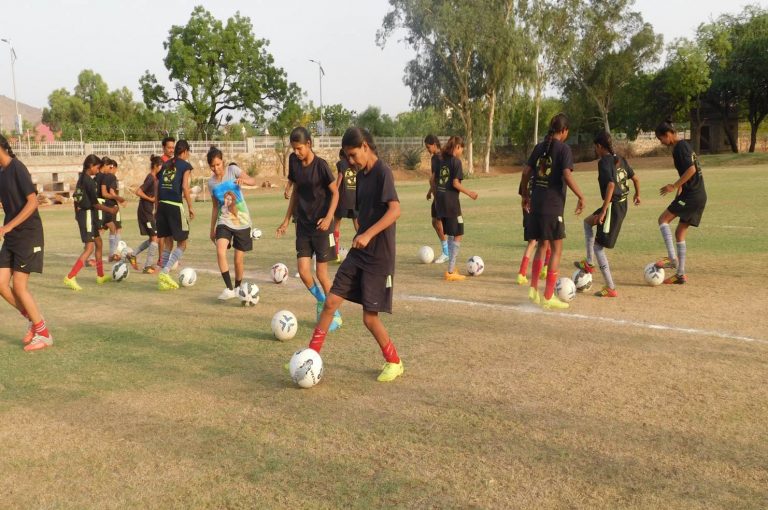
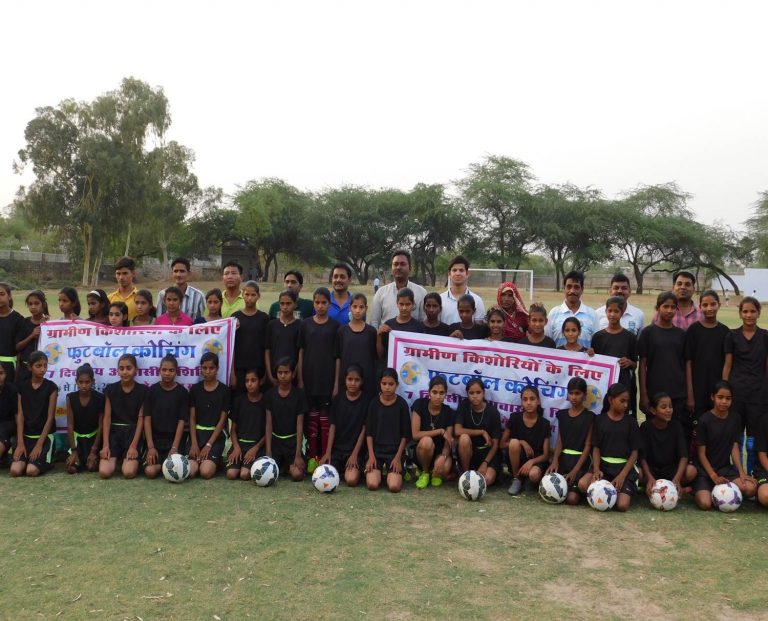
Project: Kicking Out Patriarchy, Embracing Change
Using Sports to Break Gender Norms
With an emphasis on sending out a strong message against child marriage in Rajasthan, the organisation collaborated with HAQ (Centre for Child Rights, Delhi), with the support of the Australian High Commission, to mobilise girls ages 10-18 to play football. The objective was to use sports, in particular football — which is traditionally seen in the villages as a ‘male sport’ — to break gender norms, help girls move beyond their family confines, take greater control over their bodies, be able to better negotiate their own aspirations and ultimately prevent their own early marriage, as well as those of others. This programme also encourages married girls to step out of their traditional roles of daughter-in-law, wife and mother.
The first roadblock was the pre-conditioning of the village girls as well as their little knowledge of the sport. MJAS organised several meetings, dialogues and activities with the girls and their families to persuade them to participate and support the football programme. The community, including teachers and even physical education teachers, felt that football was unsuitable for girls and that sports for girls was a sheer waste of time and that girls running around in an open field would attract undesirable attention.
Gradually, many parents and community leaders extended their support to this programme. Now many school authorities, teachers and physical training teachers support the project. This programme has already seen significant social change in the lives of these girls and in the prevailing attitudes in their villages. They also learnt to stand with each other and work together as a team. Today, they continue their personal and leadership development while chiselling their football skills. They are also exploring the possibility of pursuing coaching and other livelihood options.
Originally, it was proposed that 60 girls from four villages each be targeted as participants but the count was extended due to a favourable response from the girls. Initially, 350 girls showed interest in playing but only 167 committed to playing regularly.
- In November 2016, a Kishori Khel Utsav (Sport Festival) was organized in Meena Ka Naya Gaon as the first major event of the project. The playground was cleared of the long-standing squatters with the help of villagers, local panchayat and tehsildar (revenue official). About 350 girls attended the event, many among them travelling on tractors from remote villages to reach the venue. Some came to just witness something they had never seen before. Nearly 400 children and guests participated in the camp. Everyone was fed by the Meena Ka Naya villagers.
- Seeds of unity and solidarity amongst the girls were sown through football. In the first residential camp, girls of the same village stayed together. However, in the subsequent camps, girls from different villages stayed with girls from other villages of their own age. Activities were decided based on the girls’ consensus. This allowed the girls to develop new identities, make new friends and negotiate among themselves.
- In the beginning, it was not socially acceptable for girls to wear shorts and T-shirts in their villages. They would wear their salwars over their shorts and would take these off only after reaching the playing field. Sometimes they would tuck their salwars into their shorts to play. Finally, they started coming from home just in their shorts and T-shirts. They overcame this societal dress constraint. Parents and community members now accept that they wear shorts and T-shirts.
- Football became a medium of engagement with all village stakeholders and it proved to be a good way to challenge everyone’s thinking on gender and child rights.
- The project was supported by the Ajmer District Football Association and they provided eight coaches for the summer camp held in Ajmer. The football association organized a tournament for girls by age groups. An exciting match was played between the coaches and the girls at the end of the camp.
